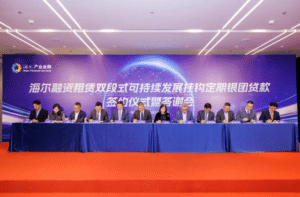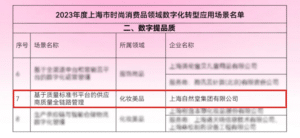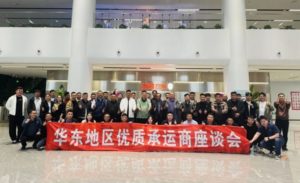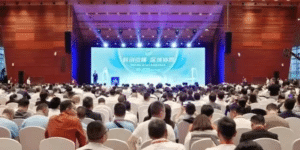Huawei files lawsuit in Portugal or has other agenda
[ad_1]
Chinese tech giant Huawei has filed a lawsuit in a Lisbon court against a resolution by Portugal’s Cyber Security Commission (CSSC) that could lead to operators refusing to use Huawei equipment in high-speed 5G mobile networks. The CSSC provides advice to the Prime Minister of the Portuguese government. Although Huawei is not directly named, Huawei believes that the resolution creates obstacles for Huawei to enter the Portuguese 5G market. Both Europe and the United States are concerned that China’s involvement in critical infrastructure could endanger national security. Both Beijing and Huawei deny such claims. Huawei told Reuters: “As a company operating legally in Portugal, Huawei hopes to seek to protect its legitimate rights and interests and statutory rights in accordance with Portuguese law.” Documents from the Portuguese Ministry of Justice show that Huawei submitted a request to the Lisbon Administrative Court on August 31. pleading. Strategic Litigation – Preparing for International Arbitration Proceedings. In an interview with VOA, Pacome Ziegler, a well-known Portuguese arbitration lawyer and founding partner of Delaloa Law Firm, discussed the legal status of the Cybersecurity Commission against which the lawsuit is based. expressed doubt. Because if the committee is only of advisory nature and is not an independent administrative agency, Huawei’s lawsuit will be aimless. “I am not sure whether the resolution of the Portuguese Cybersecurity Commission (CSSC) has legal effect. In administrative legal proceedings, this committee needs to operate like a proper independent administrative entity to have legal status, but I am not sure whether the committee meets the requirements Those conditions. Because as far as I know, it’s like an advisory committee of a group of people and it doesn’t have any administrative authority,” Ziegler said. Ziegler then emphasized the slowness of administrative proceedings in Portugal, and therefore believed that Huawei’s current legal proceedings are to gain a chance of winning in future investment arbitrations. He speculated that Huawei is adopting a more gradual strategy. He said: “Huawei’s main motivation may not be to win the local administrative court lawsuit, but to build a stronger case for the subsequent arbitration proceedings. In the subsequent arbitration, Huawei can claim that it has tried all avenues of legal relief but failed. No success.” Ziegler believes the Sino-Portuguese treaty could play a key role in any possible litigation. Under the investment protection treaty between China and Portugal, Chinese investors in Portugal generally enjoy the same protection as Chinese investors in Sweden or the United Kingdom. In particular, the Portuguese government needs to guarantee that Chinese investors receive “fair and equitable treatment” and “no less favorable conditions than those accorded to domestic investors or “third country investors” for investments and related activities. In view of these treaties, Ziege Le believes that the core issue in the possible arbitration between Huawei and Portugal may be, “On the one hand, is the Portuguese government’s ban or restriction on Huawei’s 5G equipment based on objective cybersecurity concerns, or on the increasingly fierce competition between the West and China?” response to geopolitical considerations arising. On the other hand, whether such a ban or restriction violates Huawei’s “reasonable expectations” of participating in the construction of Portugal’s 5G network. ” Geopolitical and security factors Peter Dahlin, director of the Portugal-based Safeguard Defenders organization, commented on Portugal’s Huawei 5G ban from a broader geopolitical perspective in a written reply to VOA. The impact. Darling believes that Huawei may not regard Portugal as particularly important; however, Portugal has always been open to China’s strategic investment. If this market reverses, it may have an impact on Huawei’s development elsewhere in Europe. Trouble. Darling pointed out that Portugal does have an existing screening mechanism for investment from China, but this mechanism has not yet been used to crack down on China’s strategic investment. Darling did not shy away from expressing his disapproval of Chinese companies’ participation in telecommunications infrastructure security concerns about the construction of the facility. Darling believes that concerns about Chinese companies such as Huawei are justified because of past espionage activities. Darling added: “The concerns about Huawei are more about its potential future uses than Practical use now. However, putting critical infrastructure in the hands of Huawei is not a wise move given that it is controlled by an increasingly bellicose Chinese Communist Party and has soured relations with the West. “Voice of America has requested comment from Huawei on the ongoing litigation but did not receive a response as of press time. Observers note the lines between security, politics and commerce as countries work to integrate 5G technology around the world It’s getting murkier. Today’s decision by Huawei to push back through legal proceedings against Portugal’s Cybersecurity Commission could set a precedent for more comprehensive international technology trade discussions in the future.
[ad_2]
Source link







